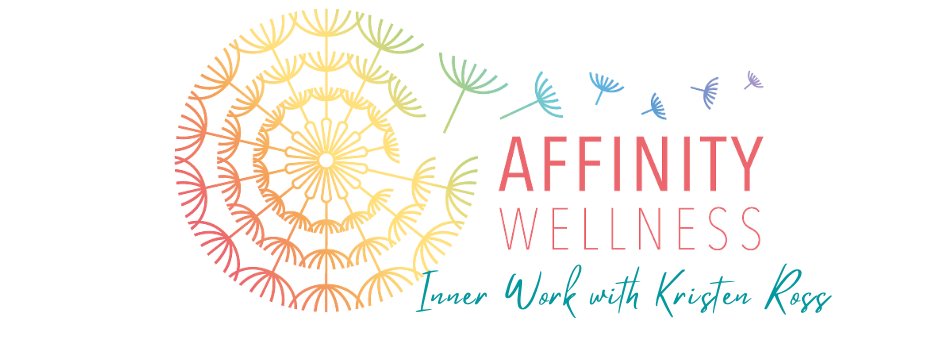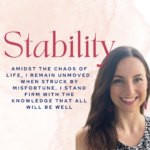Cultivating Happiness.
Happiness is something that we all wish to experience for our lives. For centuries seekers have been trying to understand how we can experience this ultimate goal. Creating long-term happiness can be hard work. It means changing your worldview about the definition of happiness and surrendering to negative emotions. This is not something that anyone can achieve overnight. It is a life-long commitment to the path of deep introspection and practice. If you can stay true to your path with the goal in mind, you may achieve a state of happiness that is fulfilling and sustainable.
Happiness is a life-long pursuit.
If you were raised with a western mindset towards happiness then you might have your happiness wires crossed. Westerners tend to think of happiness as a momentary feeling as opposed to a state that we can live in for the long-term. In some eastern traditions, it is believed that happiness should not be limited to short-term moments of pleasure. True happiness can be seen to come with having a healthy state of body, mind and spirit. We can cultivate happiness in all these areas but it takes effort to maintain. There is a strong link between health and happiness and as we all know maintaining good health is a life-long pursuit.
Happiness comes from within
Contrary to popular belief, wealth and status do have some effect on your happiness, but only a small amount. People often feel unhappy even when they have all the possessions that should make them happy. There’s a collective belief that we must strain to find happiness as we look for it in the newest most updated versions of our devices, cars and houses. It seems as though we never advance. This is the problem with seeking happiness from outside our selves instead of focusing on our inner being. If happiness were an external phenomenon then it would always be out of our reach because our desires are limitless but our control over our circumstances is limited.
Happiness is freedom from attachment.
Many people believe that happiness is nothing but a momentary relief from the suffering of our daily lives. Because our attachment to material things is so great losing these possessions causes us suffering. Our high vulnerability to suffering may cause us to feel a sense of pointlessness when we don’t get the outcome we expected. To end the cycle of suffering we must accept that suffering is universal and unavoidable. Our pain doesn’t stem from our losses, but from the attachment that we have to our possessions. It comes from the idea that discomfort is not a part of life that we should be accepting of. If we can let go of our attachments to ideals we can move towards a more fulfilling life.
Thoughts lead us to unhappiness.
If happiness comes from within then unhappiness also has its foundations within. Often we blame external events as the cause of our distress. It is our thoughts and perceptions of external circumstances that are the root cause of our discomfort. In any situation, we have a choice to interpret the events from either a positive or negative standpoint. Many of us have a bias towards thinking the worst, it is part of makes us human and has helped us survive. Negative emotions get out of control when we do not interrupt them or question the reasons that we are experiencing the feeling.
Overcoming negative thoughts and emotions.
If you don’t learn to control your mind, it will end up controlling you. There is a belief that you cannot feel conflicting emotions at the same time. One way to overcome negative thoughts and emotions is to practice love, compassion and kindness towards others. Acknowledging your negative emotions exist can help you to question where they have arisen from and what the source of the thinking is. It will also help you understand that emotions are just emotions and are not you. You have the option to change the way you think about the situation by focusing on the positive outcomes or lessons the situation presents.
Practices such as meditation can help you to become aware of the power of your emotions.
Therapeutic approaches such as counselling, holistic kinesiology and psychotherapy can help you further to identify your thought processes and learn techniques to question your thoughts.
Are your ready to create your Happy Life?
The Happy Life Goals course has been designed to help you let go of what is not serving you and get you on track to achieve goals that are fulfilling.
Kinesiology can help you let go of what no longer serves you.
Kinesiology can be used as a tool to identify and reduce stress and blockages. A big part of kinesiology is about the ability to let go.
Using Kinesiology in combination with Counselling, Dreamwork, Yoga and Vibrational medicine practices can help to release your attachments and balance body and mind.
Suggested treatment plan.
I recommend:
- An initial 90-minute kinesiology consultation followed by 3 – 5 standard consultations 1 -2 weeks apart.
- Further follow-up standard consultations should be spaced between 2 -4 weeks apart or booked as needed.

Recommended reading:
Happiness by Matthieu Ricard guides you toward a state of true happiness. Many people today believe that happiness comes from things like money or fame, but long-lasting and profound happiness stems from maintaining a higher sense of well-being. Purchase from Book Depository or iBooks
Kristen Ross founded Affinity Wellness in 2007 and since has helped hundreds of clients to unlock their Inner Guidance, Unleash their potential and create lives they love.
With a history in the management of artists. Kristen had the opportunity to help guide the careers of many professional actors and artists, helping others thrive personally and professionally by connecting to their intuition and inner compass, this led her to study healing modalities such as kinesiology and counselling to enhance her work as a soul empowerment guide.
Kristen combines a striking combination of energy healing (kinesiology), counselling, coaching, dreamwork, meditation and yogic medicine practices to tap into the many facets of the self, mind, body and soul and release the layers that block her clients from accessing their intuition and self-love.
She believes that your life is your spiritual practice and that every decision you make is a part of your journey towards peace, power and enlightenment.
Everything you create and achieve comes from your ability to love and accept yourself and to do that you must engage in inner work.
Kristen currently runs a private online practice servicing individuals across Australia, New Zealand and the UK based in Melbourne, Australia.





